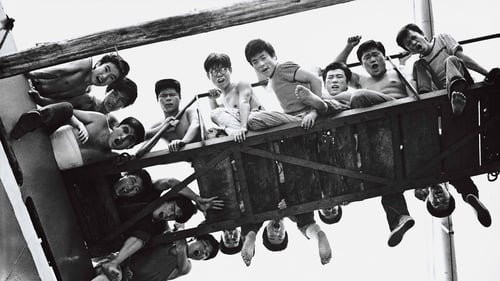
Script
When Ritsu Onodera changes jobs, looking for a fresh start, he's not exactly thrilled when his new boss turns out to be his old flame. Ritsu's determined to leave all that in the past—but how can he when his boss is just as determined that they have a future? Tired of accusations that family connections got him his current position, Ritsu Onodera quits his job as an editor at his father's company and transfers to Marukawa Publishing. Once there, he is assigned to the shojo manga editorial department—something he has no interest in and no experience with! Having sworn he'd never fall in love again, the last thing he wants to do is work on love stories. To make matters worse, it turns out that his overbearing boss, Masamune Takano, is actually his first love from high school!

Situado en el período Tokugawa (o Edo), es la primera de las películas de la Serie los placeres de la Tortura de Teruo Ishii. Esta primera película retrata una sucesión de mujeres que son decapitadas, quemadas vivas en la hoguera y partidas en dos por bueyes. La película adopta un enfoque acrónimo de tres historias cortas que todo culminará en largas sesiones de tortura.

Tamaoka
Three tales of women that resided in the Shogun's harem (o-oku) during the Edo period.

Mine, the only daughter of Kiyagen, is faced with running the family's timber business when her father falls ill. Under a great deal of pressure to continue the five generation long run of the business, Mine is put to the ultimate test when a former gangster sets his sights on closing her down.

Osaka, 1907: Asajiro lives between a rock and a hard place: he has to keep his business clean and running, tame his late oyabun’s hot-blooded son and suffer the throes of his impossible love for beautiful geisha Hatsue.

Yasue Murata
Experienced shipyard worker Shimazaki gets an offer of free lodging from his employer in the company seaside rest house if he agrees to see to its running. After moving in, Shimazaki finds out that this will also mean taking care of a flock of youngsters, and he soon becomes their none-too-successful warden. At work the boys are disciplined, as soon as they return to their dormitory however they turn into an unmanageable mob.

Shige
In this Japanese drama, a dry goods merchant's daughter is surprised to discover that she has a twin sister. In rural Japan it was thought that twins bring bad luck, so the sister was abandoned at birth. Later her parents tell her that her sister was kidnapped. The woman doesn't believe this and when she eventually meets her twin, both women are involved in love affairs. The merchant's daughter is seeing an educated fellow. Trouble ensues when she begins suspecting that he may be more interested in her sister.

Okiyo
The adopted son of an Osaka courier falls in love with a prostitute and, discovering that she is about to be purchased by a client, steals money from his employer to redeem her. Hunted criminals, the two young lovers take flight to Yamato, but, as in Chikamatsu's other domestic tragedies of love and duty (known as sewamono), they must be pursued and their passion destroyed by death. Favourite Uchida themes, such as the indenturing of a prostitute (cf. YOSHIWARA; A BLOODY SPEAR AT MT. FUJI), and his characteristic emphasis on performance and theatrical artifice re-emerge here; but the daring device of having Chikamatsu appear as a character - not unlike having Shakespeare interpolated into a film adaptation of one of his plays - is just one of many surprises this remarkable film holds. “Extraordinary” (Donald Richie).

Kurama Tengu is a hero to the common people, saving them from the malicious attacks of Kinnoroshi and Shinsengumi.

Ōhōri Tsuruhime
Gotō Matabei is the most able and fierce samurai of the Kuroda clan. However, he gradually dislikes the ruthless personality of Kuroda Nagamasa and leaves the clan. Seven years later, he joins Toyotomi Hideyori's army. Filmed in 1945 and released in 1952.

A Man of the Arts

Followup film to Osaka Elegy - Osaka Woman







